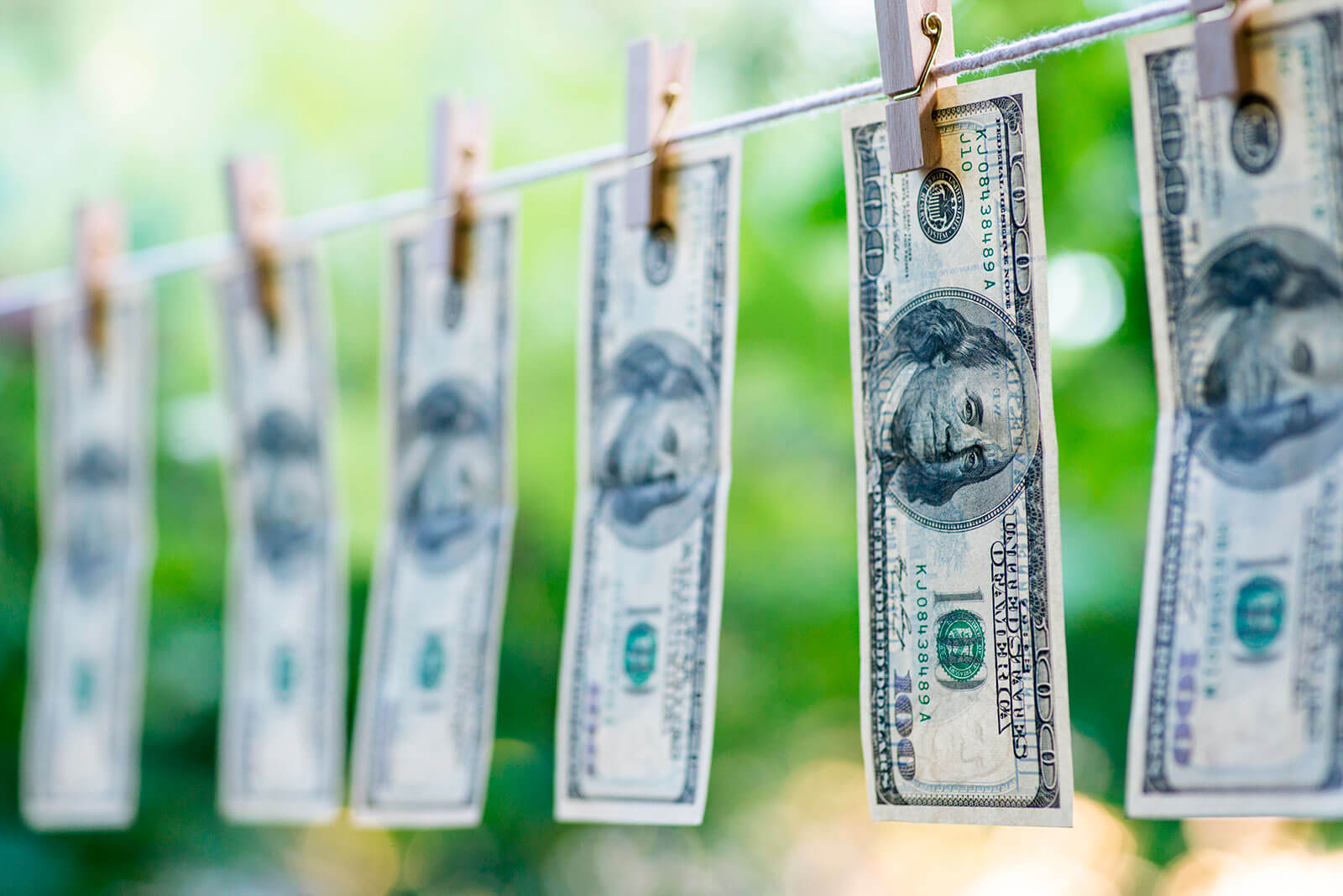1st September 2020
Share this blog post:

Michael T. Mann laundered $1bn in the weeks before his demise.
The conviction of a US-based businessman who laundered an eye-watering $1bn in one month went almost un-noticed by the world’s media this week.
New York attorney general Letitia James and New York State police superintendent Keith M. Corlett announced on 28 August the felony prosecution of Michael T. Mann who has agreed to pay restitution to his victims.
Mann, aged 50 and from Northville in upstate New York, is believed to have laundered over $1bn in stolen funds from employers, employees, financial institutions and other firms between 2016 and 2019. Mann is the former chief executive officer of payroll service companies MyPayroll HR and ValueWise, both of which held payroll assets on behalf of client firms across the United States.
But instead of overseeing payroll disbursements on behalf of his client-employers, Mann’s firms spent years diverting assets through business accounts he controlled. His frauds were so massive and brazen that they eventually consumed him: Mann diverted huge sums simply to repay loans he had already obtained fraudulently.
Court documents show that in the month before his frauds were exposed, Mann laundered more than $1bn – requiring hundreds of transactions each day, often using combinations of shell and shelf companies.
But the frauds had a very human impact. Some of the clients Mann targeted were forced out of business. Organisations Mann targeted included those providing ambulance and healthcare providers, restaurants and education services.
The frauds came to light in September 2019, when MyPayroll HR abruptly collapsed and his other payroll accounts were frozen.
Mann last week pleaded guilty to Money Laundering in the First Degree – a crime which carries a state prison sentence of between eight and 24 years.
As part of his plea deal, Mann has also been ordered to hand over $100m in restitution to his victims.
Commenting on the guilty plea, Letitia James said: “As Michael Mann spun his widespread web of deceit, employees and employers throughout the state of New York paid the price.
“This conviction serves as a clear reminder for all those who attempt to steal money for financial gain: my office will continue to be relentless in the pursuit of anyone who takes advantage of New York’s people and businesses.”
You can read the full press release from James and Corlett here (link).
But incredibly, there has been little US media coverage of Mann’s guilty plea. Ordinarily, one would think that a case involving a man who illegally laundered $1bn would be widely covered locally, nationally and internationally.
But the lack of coverage highlights how difficult it is to get the world’s media interested in one of the biggest threats to international economies in the twenty-first century: dark money flows or illicit finance.
As ever, the team at Global Financial Integrity (GFI) were among the few organisations which attempted to draw attention to the case – and the relative ease with which Mann went about his crimes.
Tom Cardamone, CEO at GFI, was so frustrated with the lack of media interest that he took to Twitter to raise his concern. He asked: “How is someone convicted of money laundering ‘over one billion US dollars’ just a local story? Where is the national media on this?”
I understand Tom’s frustration. The Coronavirus and Covod-19 pandemic has rightly drawn global media attention in 2020. But while the world has been looking the other way, worried about the virus and its long-term impact, the threat posed by illicit finance has merely grown stronger.
As we know from the re-emergence of the mafia in parts of Italy during the pandemic, organised crime always sees an opportunity in global and local economic instability – such as that caused by the current pandemic. What’s needed during such periods is a local, national and international media quick to spot the threat – and to cover wrongdoing.
But herein lies the problem. Newsroom resources are currently stretched to breaking point by a combination of virus coverage and (related) continued threats to their own businesses. In the US, of course, much of the media is now also slowly cranking up its coverage of the forthcoming presidential election. In these circumstances, too often we’ll see significant criminal activity go un-investigated or uncovered by the world’s media.
Thankfully, some organisations still exist to expose illicit finance and its ramifications. Naturally, police forces, intelligence services and legal offices continue to track and prosecute it. But they could certainly do with some broader media help in drawing attention to, and exposing, the threat.
NOTE FOR UK READERS: Some of Mann’s activities were reported by The Daily Mail when he was first exposed in 2019. You can read that early, pre-prosecution coverage here (link).
Share this blog post:
30th March 2023
New Thinking Archive: Braverman and UK Asylum Seekers
Quite rightly, the treatment of UK immigrants and asylum seekers is back in the news. There’s a lot to say about the UK government’s handling of these delicate policy issues,…
Read now
22nd March 2023
New Thinking Archive: China and Illicit Trade
This week, another article from the New Thinking magazine archive – on the reality of China’s illicit trade. Timely, given President Xi’s recent visit to Moscow. A few interesting, and…
Read now